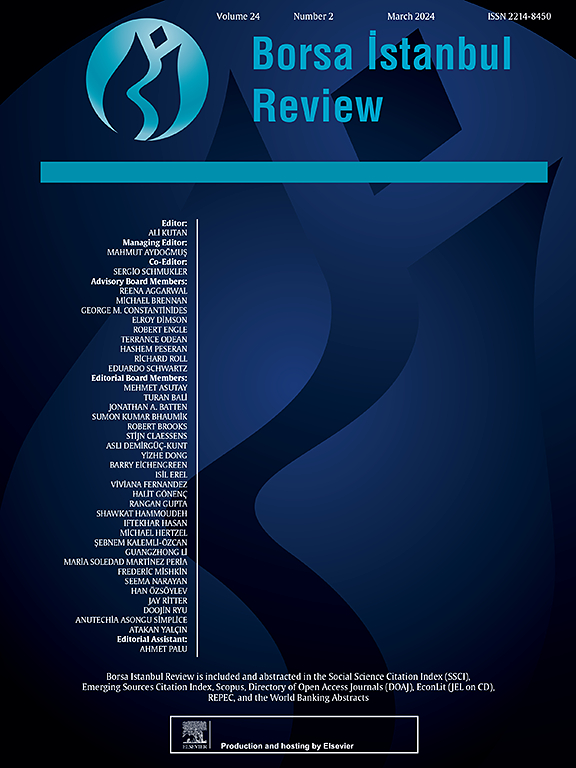Determinants of financial inclusion in sub-Saharan Africa and OECD countries
IF 6.3
2区 经济学
Q1 BUSINESS, FINANCE
引用次数: 0
Abstract
Using a dynamic panel data analysis, we explore the factors that influence financial inclusion in sub-Saharan Africa (SSA) and other regions, using member countries of the Organization for Economic Cooperation and Development (OECD) as a benchmark. We employ a system generalized methods of moments estimator and assess 31 SSA and 38 OECD countries from 2000 to 2021. We show that the literacy rate, trade openness, political stability, bank efficiency, income, and remittances are key factors with various impacts across regions. We further show that various dimensions of a financial system (access, usage, and quality) are impacted by different indicators and to varying extent. We account for events during the period, such as the global financial crisis and COVID-19 outbreak. We highlight the importance of quality literacy policies and a more efficient financial system in promoting financial inclusion. We recommend improving trade regulatory frameworks that promote trade openness through stronger institutions.
求助全文
约1分钟内获得全文
求助全文
来源期刊

Borsa Istanbul Review
Multiple-
CiteScore
7.60
自引率
3.80%
发文量
130
审稿时长
26 days
期刊介绍:
Peer Review under the responsibility of Borsa İstanbul Anonim Sirketi. Borsa İstanbul Review provides a scholarly platform for empirical financial studies including but not limited to financial markets and institutions, financial economics, investor behavior, financial centers and market structures, corporate finance, recent economic and financial trends. Micro and macro data applications and comparative studies are welcome. Country coverage includes advanced, emerging and developing economies. In particular, we would like to publish empirical papers with significant policy implications and encourage submissions in the following areas: Research Topics: • Investments and Portfolio Management • Behavioral Finance • Financial Markets and Institutions • Market Microstructure • Islamic Finance • Financial Risk Management • Valuation • Capital Markets Governance • Financial Regulations
 求助内容:
求助内容: 应助结果提醒方式:
应助结果提醒方式:


